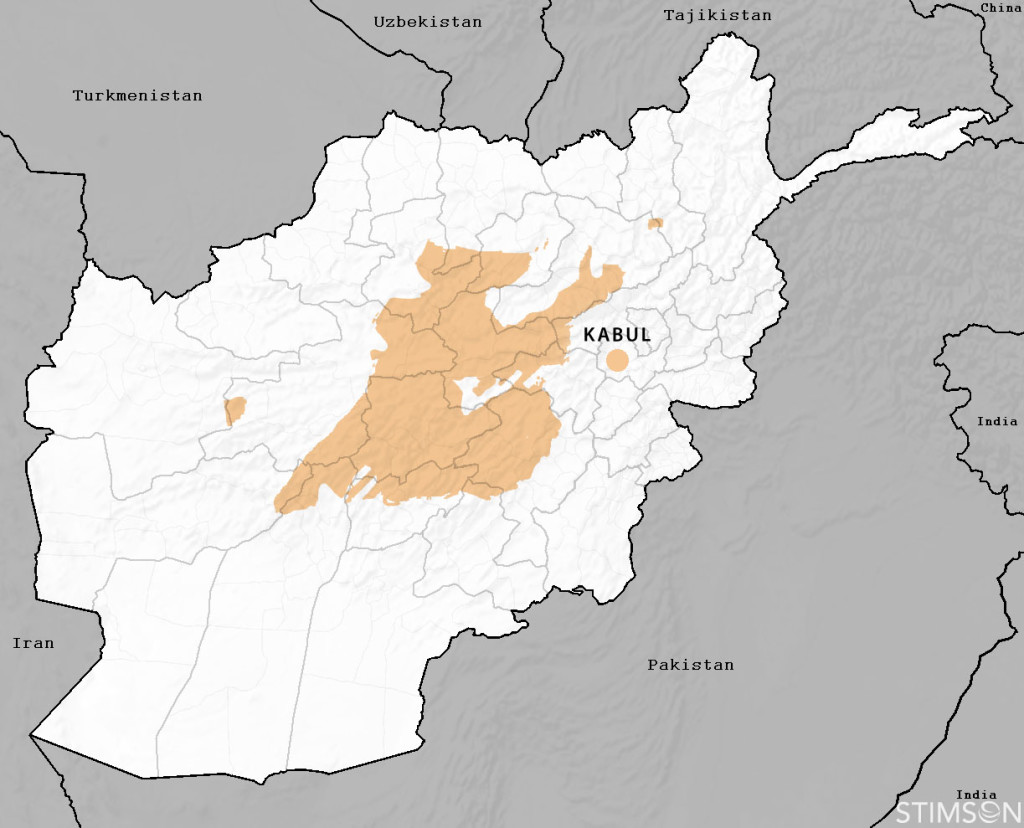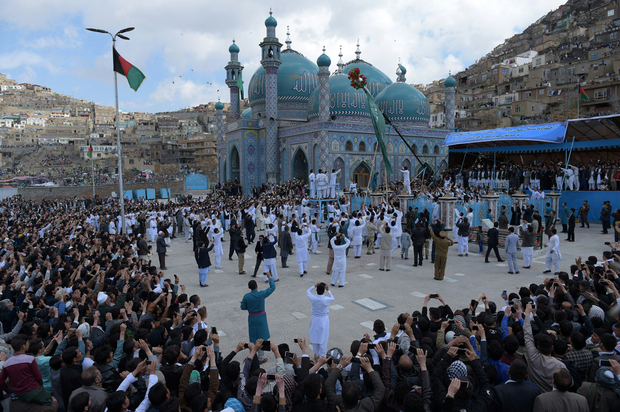May 13, 2016

The Hazara Shiites of Afghanistan, who have long looked to Iran for protection, are having doubts about the Islamic Republic’s reliability, according to the Middle East Eye news website.
Resentment has begun to grow, as Tehran seems to be warming to the Taliban, which it now see as a way to check the rise of the Islamic State in Afghanistan.
But the Hazaras love for Iran was already on the wane for Iran’s policy of sending Afghan refugees, sometimes against their will, to fight for Bashar al-Assad in Syria.

“Foreign interference is not good for Afghans. Iran and Pakistan only want to destroy Afghanistan,” Syed Najibullah Rahim, a 30-year-old Hazara from Kabul, told Middle East Eye. “They have their own political motives. Iran is America’s enemy and Iran’s only aim is to destabilize Afghanistan.” This is an interesting charge given that Iran daily accuses the United States of wanting to destabilize the region.
Iran denies preying on the vulnerable and says it supports “volunteers,” such as the heavily Afghan Fatemiyoun Brigade, to defend Shia sites in Syria and Iraq against Sunni militants.
However, many Hazara in Afghanistan say that they know of people who have gone to fight only after being coerced by the Iranian Pasdaran.
Qorban Ali, a 39-year-old Hazara living in Kabul, claims he knows a family whose son went to Iran looking for work, but was instead sent to Syria. According to Ali, the family was recently invited by Iranian officials to attend their son’s funeral. “They told the family, ‘Your son has been martyred in Syria’,” he said.
While the officials claimed he was in Syria voluntarily, Ali said he went after the Pasdaran promised him an Iranian residence permit so he could work in Iran after fighting in Syria.
While most Hazara political parties have avoided accusing Iran, Ali Amiri, the political secretary of the pro-Iran Hezb-e-Wahdat Islami Mardum-e-Afghanistan Party, led by prominent Hazara leader Mohammad Mohaq-iq, said coercing Hazaras into fighting was a human rights violation and urged Afghan authorities to probe the issue.
According to Thomas Ruttig, a senior analyst at Afghanistan Analysts Network, politically active Hazaras are growing increasingly concerned about Iran’s behavior. “The interests of Shia Hazara parties and Iran do not fully overlap,” he said.
Hazaras are the largest Shia minority in Afghanistan, making up an estimated 10 to 20 percent of the population.
Iran began supporting Afghan fighting groups, including the Hazaras, against the Soviets in the 1980s and later against the Taliban, an avowedly anti-Shiite group made up almost exclusively of Sunni Pashtuns.
However, in recent years, the rise of the Islamic State group has led some in Iran to view the Taliban as a possible bulwark against the Islamic State. Ruttig said the rise of IS was possibly now the “driving force” behind Tehran’s Afghan policy.
Last year, The Wall Street Journal reported that Iran had been providing funding, ammunition and even training to the Taliban. Last month, the Iranian ambassador to Afghanistan officially confirmed that his country has been in contact with the Taliban for what he termed “control and evaluation of the security situation.”
“There is no love lost between Iran and the Taliban,” Ruttig said. “There are multiple strings of relationships and Iran wants to keep all its options open.”
Many Hazara politicians privately admit that being seen as too close to Iran can be politically dangerous, but also believe that it is important to retain some kind of ties. “It is not like all Hazaras are ardent supporters of Iran,” Ruttig said. “The resentment has been there for a long time.
“This admission [of contact with the Taliban] by the Iranian ambassador will create more concerns among many Shia Hazara leaders. For a long time, these leaders have not been speaking nicely about the Iranians when they are not around.”
Yet a wider rift has also been emerging between younger people and the Hazara leadership, which many young people feel is exploiting ethnic tensions to secure its power.
Hazaras are still reporting that they face discrimination when applying for government jobs or trying to join the Afghan army.
The provinces chiefly inhabited by Hazaras have also remained among the least developed areas in the country, something many Hazaras feel has more to do with ethnicity than economics.
“Only the political leaders have benefited from the relationship with Iran. Nothing has come out of it for regular Hazaras,” Qorban Ali said.























